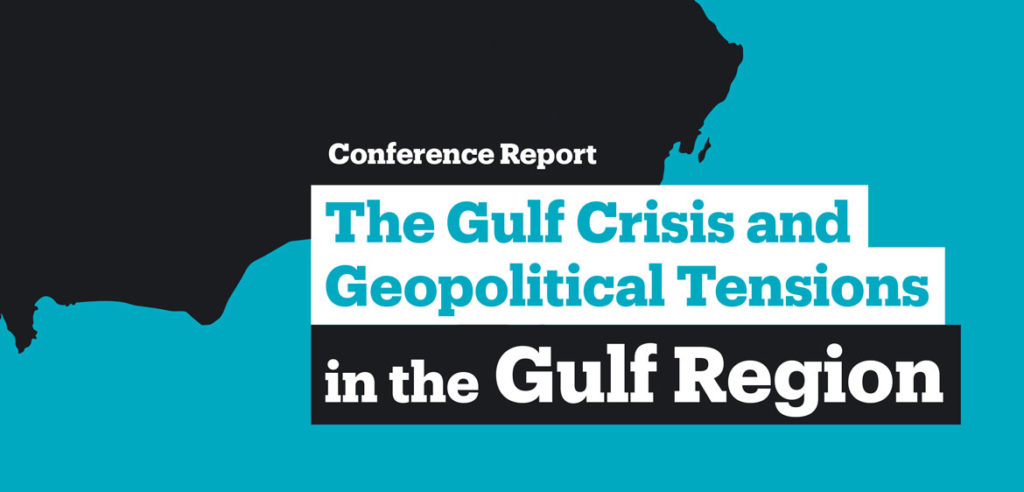On Monday, 5 June 2017, three GCC countries (Saudi Arabia, UAE Bahrain) and Egypt cut their diplomatic relationships with Doha. This unprecedented crisis in the history of inter-Gulf relations has created a state of mistrust, not only among the governments of the Gulf States, but also among the citizens of those countries. This session discussed the reasons of the Gulf crisis, its impact on the relationship between the member states of the GCC as well as the wider security in the region. The speakers tried to draw the scenarios that could be expected to resolve this crisis.
During the session, the two speakers shared their analyses on the Gulf crisis with the other experts. The first speaker focused on the root causes of the current Gulf-Qatar crisis, which dates back to 1995 when Qatar left the umbrella of Saudi Arabia to adopt an independent and open foreign policy. He explained that despite Qatar not giving in to the demands of the four countries that cut their ties with Doha, it is not likely that this crisis will cause a breakdown, at least in the short term of the Gulf Cooperation Council. The second speaker described the strong relationship between Qatar and Turkey, as well as Turkey’s ties with the rest of the Gulf States. He explained that Qatar and Turkey have the same view regarding almost all issues in the region, particularly since the Arab uprisings started in 2010. After the presentations by the senior experts of the Gulf, discussion was opened and distinguished participants shared their analyses. One of the participants argued that the crisis was implemented after getting the green light from the White House following Donald Trump’s historic visit to Riyadh in May 2017. According to him, the most important cause of the current Gulf crisis is the divergence of opinions between Qatar and the states that are party to the crisis regarding the best way to manage regional issues. The second speaker’s analysis supported the idea that assumes the creation of a new alliance in the region, which could contain Turkey, Iran and Qatar. Another participant in the session found that the main reason of the Gulf crisis is the role of the media in different Gulf countries, especially the role that Al Jazeera Media Network played in the last two decades to change the mentality in the Arab world by supporting the people.
Finally, the participants in this session concluded that the solution to the Gulf crisis should be resolved through dialogue among all concerned parties. Three main themes have been discussed during this session:
The real reasons of the Qatar-Gulf crisis
The impact of this unprecedented crisis on the security of the region
And the scenarios expected to resolve the crisis
